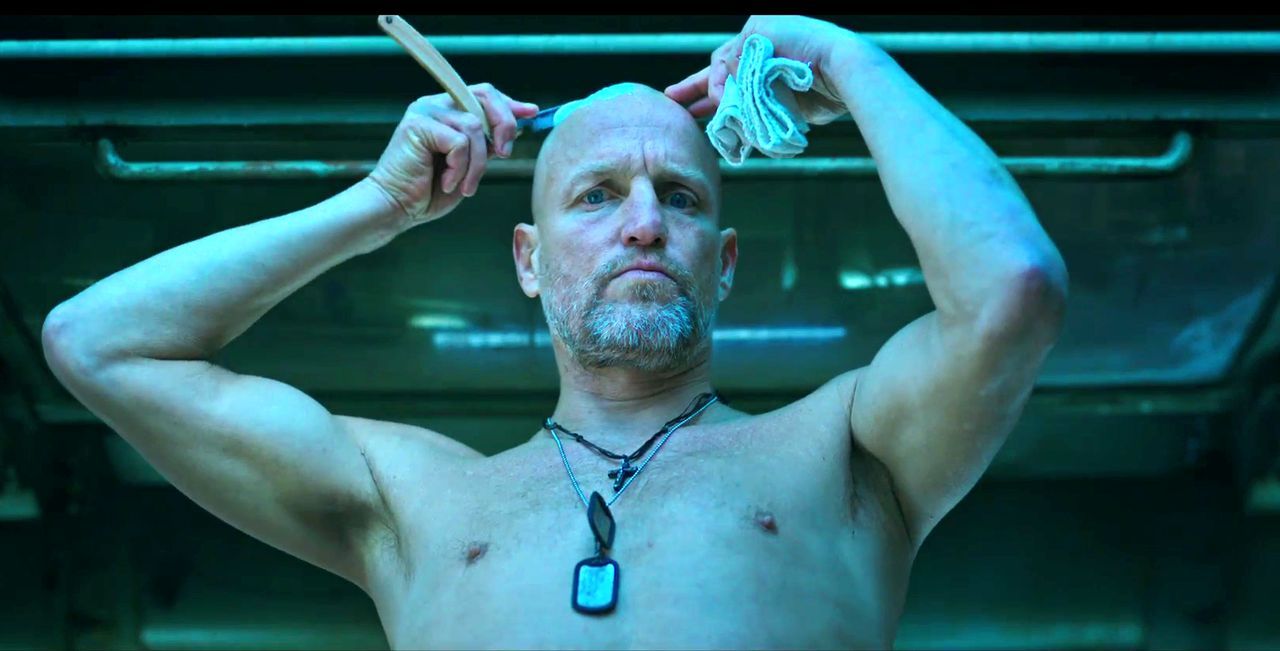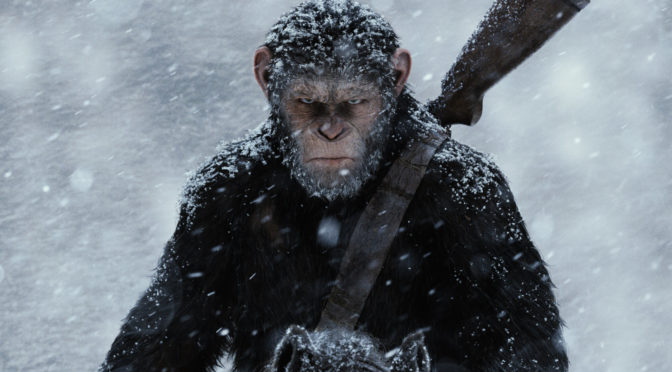Picking up a few years after the previous film, the apes are still hiding in the woods and battling the humans. Their leader Caesar (Andy Serkis; The Lord of the Rings) is trying to find a way for them to end the conflict with the humans or at least escape to a new home where they can live in peace. On the other side is The Colonel (Woody Harrelson), a military leader bent on eliminating the apes.
War is both a Darwinian and a biblical epic. The hatred coming from the Colonel is because he is acutely aware of humanity’s own inferiority. Caesar and the apes are as intelligent as the humans but they are physically stronger. In a world of natural selection, they will eventually win out so the Colonel seeks to end the apes before that can happen. Caesar becomes their seminal figure in the face of this threat. He is the only one that can save them from this oppression and move them into a new age.
Serkis continues with the nuanced, emotive performance we have come to expect. This Caesar is the definitive ape leader, but he does not have the energy of his youth. More than anything else, Serkis exudes Caesar’s responsibility. He bears the burden of saving his tribe and the minor grimaces and pensive pauses in his decision making demonstrate the weight he carries. Every direction he takes the apes in could potentially change their lives. Serkis’s motion capture cements his Caesar as the true star of this film trilogy.

The motion capture performances are further complemented by Weta’s incredible attention to detail. Having innovated the motion capture process with Gollum then enhanced it with 2005’s King Kong, Weta is the leading effects house for this technology. The textures of their wrinkled skin, the matted fur, and, most of all, the emotion in their eyes is clearer than ever. This is the first of the recent Apes films without human protagonists. It forces the audience to identify with the apes rather than their own species and this is only possible because of their rendering. Weta’s visuals create the emotion needed to recognize the humanity in the apes.
The Colonel becomes a cartoonishly evil character. He shaves his head with a straight razor and is almost always seen wearing sunglasses. The film tries to show his behavior as the result of cold pragmatism, but, as a brand-new character, he feels two-dimensional. There is a shoehorned backstory to make him sympathetic, but it is too abrupt to change his characterization. Harrelson’s performance is part of the issue. He is neither menacing nor does he appear particularly strategic. He has always been better in lighter roles and he seems miscast here. His Colonel is supposed to be taken seriously but instead comes off like Brad Pitt’s character in Inglorious Basterds. He is unintentionally silly in a somber film. He can’t bring depth to an underwritten character and without a grounded villain, the film is unable maintain its more realistic tone. The motion capture acting is stellar and Weta continues to impress with their visuals, but the weak antagonist diminishes the gravity of any threat to the apes.

3/5 stars.
